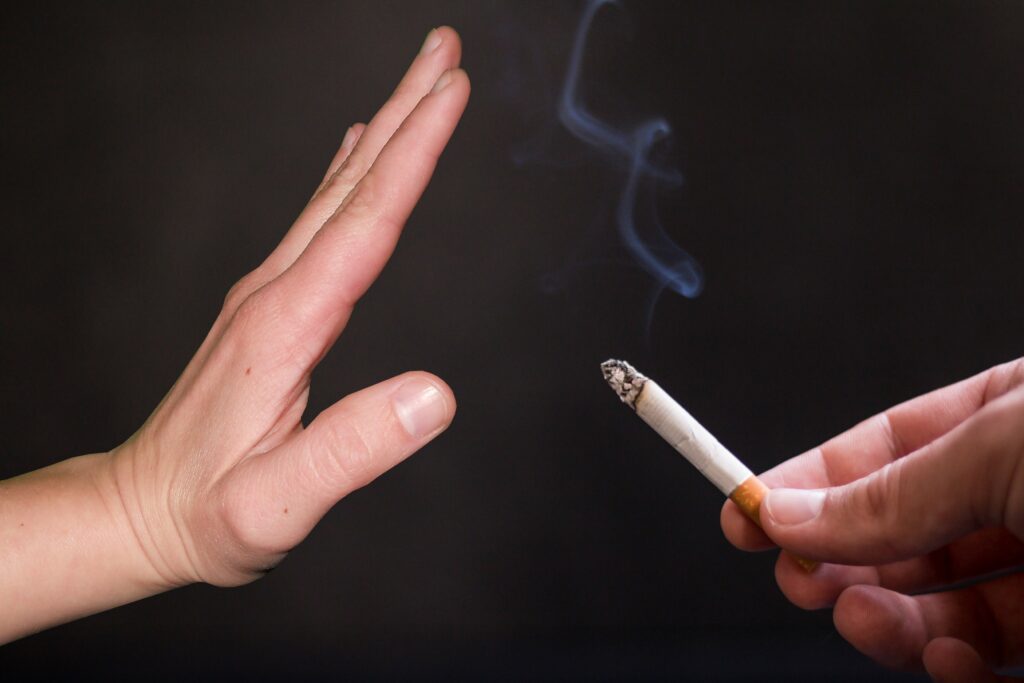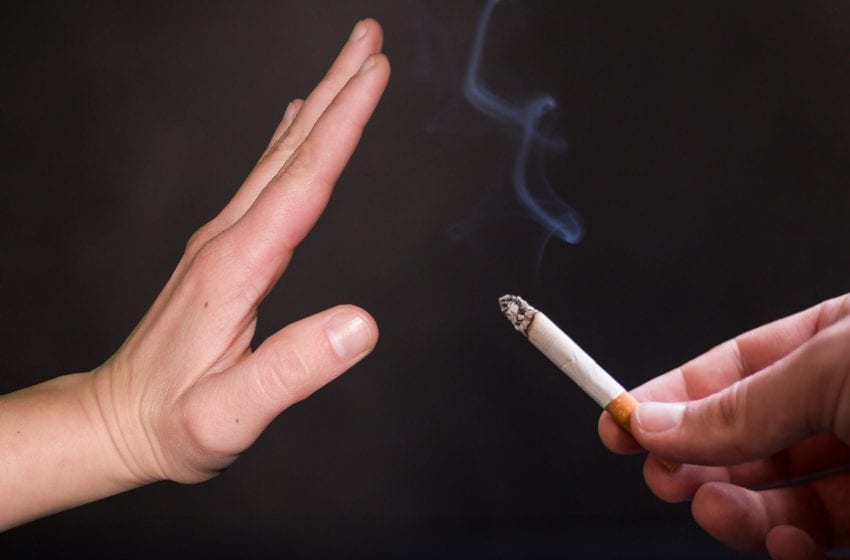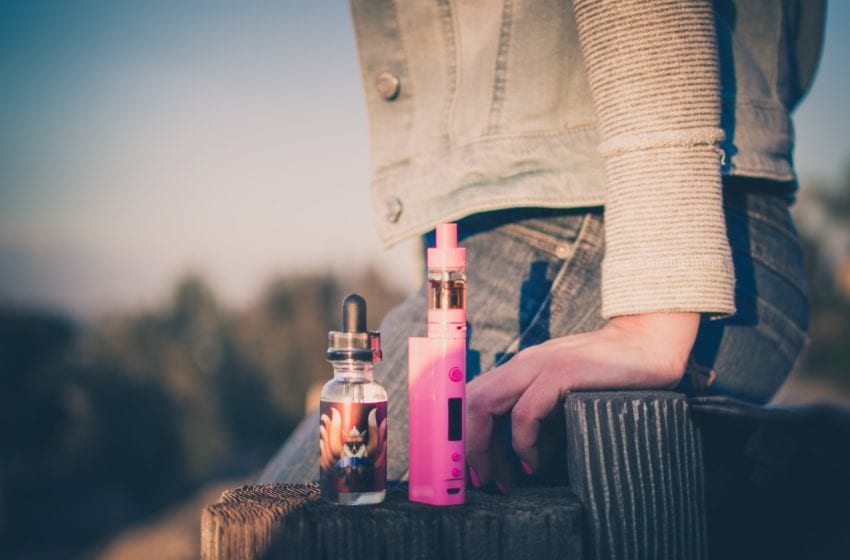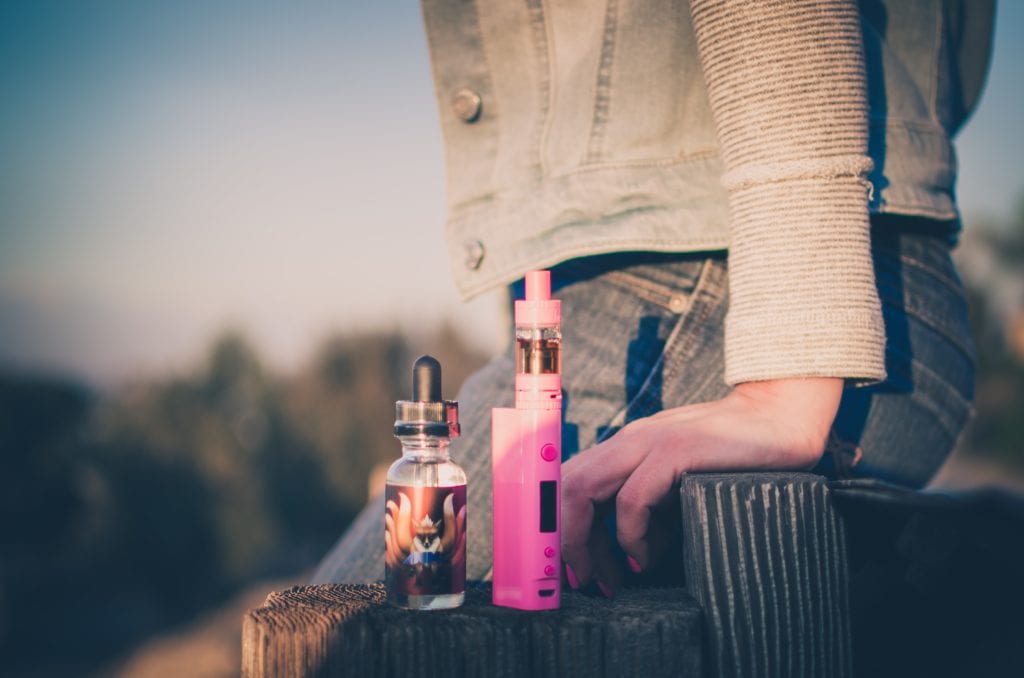
While tobacco harm reduction products have an important role to play, quitting ‘cold turkey’ remains a legitimate strategy in pursuit of better health.
By George Gay
According to a joke included at the end of a London Review of Books piece by Jerry Fodor, a keynote speaker opens his remarks at a philosophical conference by saying that, in principle, there are 12 philosophical positions, only to be interrupted by a heckler shouting, “13!” The keynote speaker continues: “As I was saying, there are 12 philosophical positions …” but again the heckler shouts, “13!” The speaker then says that he will describe briefly the 12 philosophical positions. The first, he says, is Naive Realism, according to which things are more or less the way they seem to be. At that point, the heckler shouts, “Oh no, 14!”
You don’t have to be a philosopher to get the message that there is a danger that complexity can suffocate simplicity and the common-sense benefits that the latter has to offer. This isn’t to say there is no need for complexity—just that there is also a need, at times, for simplicity. As I believe Einstein once put it: Things should be made as simple as possible but no simpler.
Is there not a danger that in pursuing tobacco harm reduction (THR) we are losing sight of the simple? I know it’s unfashionable to ask, but what is wrong with smokers going cold turkey if they want to quit their habit? There was a time when all smokers who wanted to quit went cold turkey because that was the only route out of tobacco. And millions did it. I was one of them.
What a lot of readers will be thinking, however, is that there’s nothing stopping smokers from going cold turkey, so what’s the problem? Well it’s not quite true that there’s nothing stopping them doing so. I can think of at least two things that would be holding them back.
One is the fact that various people and organizations have taken a lot of trouble to convince smokers that quitting cold turkey is incredibly difficult, if not impossible. They have tried and largely succeeded in convincing many smokers that they are victims who cannot control their own destiny. Their ability to make decisions about smoking and health has been taken from them by tobacco manufacturers. This, of course, is nonsense, but it is a useful narrative for some people to spread and, regrettably, for others not to counter.
The other reason is that smokers are given too little help to quit cold turkey. Why couldn’t a large part of THR comprise tobacco tax-funded public announcements encouraging smokers to quit? Of course, there would be a need firstly to sound a very loud warning bell.
Such announcements should not descend into the type of propaganda beloved of certain governments and organizations where smokers are depicted as being victims of the tobacco industry, patients of the medical profession and the scourge of society. And such announcements should not feed smokers a bunch of lies and half-truths, try to frighten the pants off them and generally treat them as though they were children without the ability to make rational decisions.
Better still, smokers should be provided with positive rather than negative information. They should be told how quickly, post-quitting, their risk of contracting certain diseases and conditions falls to that of, or near to that of, nonsmokers. And they should be told how, in quitting smoking, and especially in quitting cold turkey, they will be saving money while making a positive contribution to helping prevent pollution and the further degradation of the environment.
One of the problems is that THR has become monetized—become part of the destructive system under which the worth of everything is judged by its performance on the “market.” We have been fooled into believing that what matters is that smoking is replaced by something that can be sold, preferably for the same sorts of profits that are currently enjoyed in selling cigarettes. That is, cigarettes have to be replaced by less risky tobacco and nicotine products, including nicotine-replacement therapy products manufactured by the pharmaceutical industry.
And it is true that there would be something to be said for such a way of looking at smoking cessation if it weren’t for the fact that less-risky products seem to be struggling—entangled in endless debates based on science and pseudo-science, conspiracy theories, political shenanigans and great dollops of bureaucracy.
These debates are all very interesting and take up hours of conference time, but they remain largely unresolved, like Fodor’s philosophical positions two through 12, and they simply leave smokers up a creek without a paddle. The interests of the smoker seem to have been pushed into the background as the various sides in the THR debate defend their own positions and brief against each other.
That something is seriously wrong with efforts being made to promote smoking cessation is clear from Burning Issues: Global State of Tobacco Harm Reduction 2020, the second (the first appeared in 2018) such report written by Harry Shapiro and published by Knowledge-Action-Change. This 162-page report makes the point that after more than a decade of product availability, there are only nine users of “safer nicotine products” (SNP—vapor devices and heated-tobacco devices, Swedish style snus and some other safer forms of smokeless tobacco) for every 100 smokers.
This should sound alarm bells, and it does, but those bells are peeling out the wrong message as far as I can hear. They are calling for more of the same. How does it go? Having lost sight of our objectives, we redoubled our efforts. 
I should add, however, that this is an excellent report with masses of information about where we are with THR and the SNPs that underpin it and how we got here. The way forward is less clear because it is difficult to navigate a path in the face of the guerrilla activities employed by those opposed to the THR approach—activities that have so far proved fatally successful in casting doubts in the minds of smokers and vapers. Nevertheless, the report contains 15 recommendations (as well as 20 conclusions) that map out a route to the future. Though, in the light of the short history of THR, some of those recommendations might better be described as wishful thinking.
One of the things that becomes clear in the report is how little success had been achieved in pushing the quit-smoking agenda before the incorporation of the sorts of harm reduction principles that had already been well established in respect of other health challenges. And little wonder given that pre-THR, the approach had been to bully smokers into quitting. THR takes an altogether more humane approach, as the report spells out:
“Harm reduction refers to a range of pragmatic policies, regulations and actions, which either reduce health risks by providing safer forms of products or substances, or encourage less risky behaviors. Harm reduction does not focus primarily on the eradication of products or behaviors.”
Contrast this with the methods employed before THR and that are still pushed by many governments, organizations and individuals—methods that are based on discouragement or punishment. Such methods include the degradation of the products that smokers enjoy through pointless controls on nicotine levels, the banning of harmless flavors and the despoiling of packaging. They include the inexcusable use of smoker “denormalization” or officially sanctioned discrimination. And they include the imposition of grossly unfair levels of taxation.

Meanwhile, there are issues brought up in the report that I believe could usefully be subjected to further analysis in any forthcoming edition of Burning Issues. The report mentions that the World Health Organization (WHO) has “not revised downwards its estimate that one billion lives could be lost to smoking-related disease by the end of the century.”
Despite the fact that many of us are highly critical of the WHO’s attempts at encouraging smoking cessation, we tend to accept its figures unquestioningly. But whereas, for instance, a figure of one billion is convenient to throw about, when you think about it, it is ludicrously rounded. And given that this is a worldwide figure, you have to ask yourself how the data are gathered in many countries, especially in those where, perhaps because of wars, there are no fully functioning administrations.
And it would be good to see some of the methodologies used in compiling such figures. Since, I guess, some people die of “tobacco-related diseases” that might also be seen as “pollution-related diseases,” how are these deaths divided up? I suspect that the default setting is to put such deaths into the tobacco-related deaths column, in which case the WHO’s tobacco-related deaths figures are likely to be inflated.
This is not an attempt to get tobacco partly off the hook but to make sure that we are taking action where action is required and not just where some people would like to see it applied. There is no point in developing vapor devices if the disease problem is down to the pollution caused by air travel, etc.
But what I would like to see, especially, is detailed information on how “tobacco-related” diseases and deaths have fallen with the reduction in smoking in those countries where such smoking reductions have occurred. In countries such as the U.K., smoking has been falling long enough for the related diseases to be also showing declines, and there should be a recognizable correspondence between the two.

The problem with accepting blind what the WHO has to say is that one can end up being mesmerized by huge figures and drawing some questionable conclusions. The report states, for instance, that the one billion tobacco-related deaths “[are] equivalent to the combined populations of Indonesia, Brazil, Nigeria, Bangladesh and the Philippines dying from Covid-19.” I know that it is considered rather trite to say so, but shit happens, people die, and it is necessary to keep a sense of proportion.
If you look at a long enough time frame, you could probably say that the equivalent of the population of Belgium will die from having pieces of toffee stuck in their windpipes. And I think the reference to Covid-19 doesn’t stack up.
There is a world of difference between smoking and Covid-19. A lot of people won’t agree with me here, but people have a choice about whether or not they smoke. But the ordinary person in the street has next to no control over the rise and spread of viruses. That is why, to my way of thinking, viruses are a valid area of interest for the WHO whereas smoking is not.
I’m not saying that we should row back from THR products, but, at the same time as we are improving these products and making them available, we should be putting our foot down harder on the cold turkey pedal just in case those opposed to THR win the day. It’s not just me being pessimistic. This is from the report.
As the environment for THR has grown ever more toxic since our last report, we have turned our attention this time to the mechanisms of the well-orchestrated and well-funded global campaigning driving an increasingly prohibitionist response to SNP.
Despite the above, it is claimed in the report that SNPs have been “disruptive” and that they have provided one of the most startling public health success stories of modern times, claims that, given the slow conversion rate from smoking to using SNPs, seem not to be supported by the evidence. Or perhaps I’m looking at things from the wrong direction. This, too, is from the report:
“Globally, the value of the vaping market has continued to grow since our 2018 report and is projected to grow further. The chart from Statista43 shows the value of the e-cigarette market at around $19 billion and its steady projected growth from 2012 through to 2023.”
I see. So it is about monetization, is it? OK, we have to be practical. We have to allow companies to make money, but there’s clearly a problem here. Declines in smoking predated the arrival of SNPs in many of the countries where these sorts of products are affordable, basically the West, but smoking is still on the increase in many low-income and middle-income countries where they are less affordable. If we are not careful, THR will become a system that helps to underpin health inequalities. If you’re rich, you can afford the products to keep you healthy; if you are not … well, too bad.
By all means, let’s redouble our efforts, but let’s make sure we’re still focused on the goal of encouraging people to stop smoking. We might need to look for new ways of doing this or even old ways, such as cold turkey.














